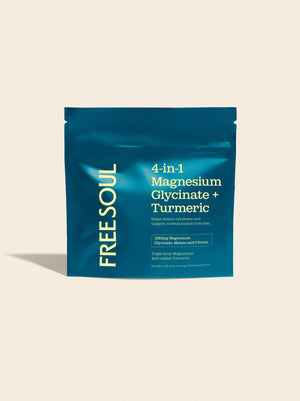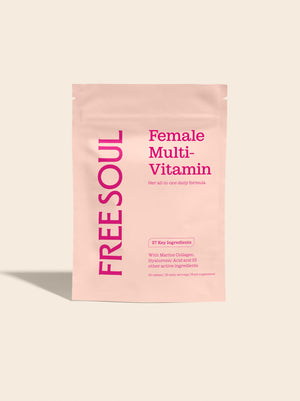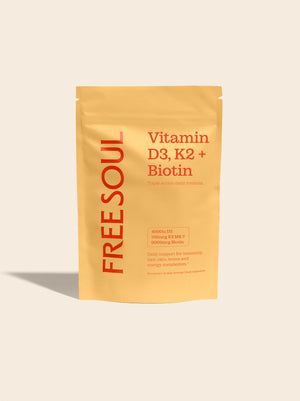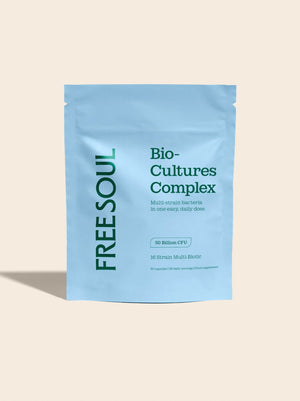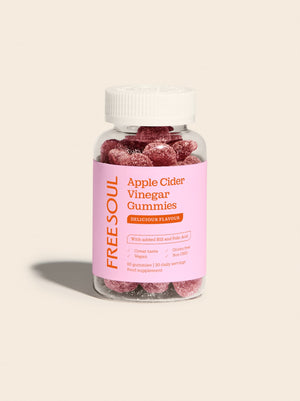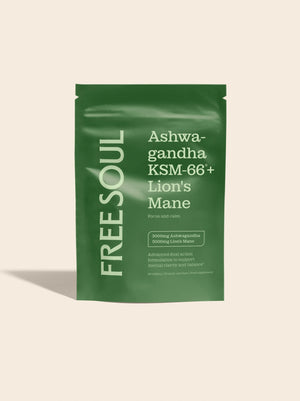Ever wondered if the plant-based milk you’re using is actually benefiting your health? It’s no secret that some milk alternatives get a bad rap. So, when it comes to your oat milk cappuccino, or your almond milk overnight oats, Free Soul Brand Ambassador and registered nutritionist, Harriet Lidgard, gives us the pointers on what to reach for, and what to watch out for.
When it comes to plant-based milks do…
- Reach for sugar free or no added sugar milks and look for the ones with as little ingredients as possible. That might look like almonds, water and a pinch of salt or oats and water.
- Avoid barista types as these are usually higher in sugar in order to make them foam more like cows milk.
- When choosing a milk alternative it is important to ensure it is fortified with calcium, vitamin D and B12. These are important for healthy bones and keeping a proper nutrient balance in your bloodstream and cells.
In my opinion Soy milk is the most nutritious milk alternative. Here’s why…
- It is an excellent source of vegetable protein and nutritionally is the closest to dairy milk. Plus contains essential amino acids which can only be obtained from food choices.
- Research has also found that soy milk contains higher levels of magnesium, phosphorus, zinc and selenium than other milks including dairy.
- Soy sometimes gets a bad reputation as people are concerned about the effect soy has on hormones. However, there is no concrete evidence to suggest that moderate amounts of soy will have a problematic effect.
Thoughts on the currently popular… oat milk
- Like with most things there are pros and cons to oat milk as an alternative. Oat milk does provide a great creamy consistency, is a good source of iodine and is higher in fibre compared to other milk alternatives which may contribute to keeping you fuller for longer.
- The downside of oat milk is that it’s not as rich in protein as some of the other types of milks. And is a higher carbohydrate option and often contains more added seed oils which are considered inflammatory.
- Overall, I prefer to choose soy milk over oat milk. If you enjoy the taste of oat milk, there is no reason to cut it out completely, however be mindful of its lack of nutrients usually found in dairy milk and that coffee shops will be using the barista version with a lot more additives and sugar.
- It is however, environmentally friendly as oats require less water to grow compared to almonds.
- You may want to consider mixing up your milks to make sure you are getting the best of both and exercising moderation.
Breaking down the other milk alternatives…
Almond milk: It's a popular choice and is lower in calories than other options. Make sure it is fortified with vitamins and minerals.
Coconut milk: It's a great option for those who are looking for a non-dairy milk that is high in healthy fats. But if you are concerned with environmental impact it’s not the best - they are only grown in tropical climates and the demand is causing massive deforestation. Along with very poor working conditions being associated with those working in the palm plantations.
Pea milk: A good source of protein, that’s similar to cow's milk. It also has a similar nutritional profile to soy milk.
With the rise in us reaching for alternative milks over dairy, it’s important to consider why you’re making the switch - environmental reasons, intolerances or taste preference.
If you are sticking to switching dairy for non-dairy options, remember to look out for milks with the least amount of ingredients and no added sugars. Personally I steer away from barista milks because of the added sugars and artificial ingredients used to make them foam, so tend to choose long blacks when ordering from cafes with a side of soy milk so I can add a little less or add my own milk at home. But, if you enjoy your frothy oat Cappuccino from your local café, there’s no reason to deprive yourself of that little bit of joy. Simply exercise moderation if you’re choosing to be more conscious of your nutrition this year.
Discover Harriet on Instagram at @harriet_well
**At Free Soul, your wellbeing is our priority, and although we pride ourselves on our expertise in women's health and wellbeing, it is important to acknowledge the individuality of each person. Features published by Free Soul are not intended to treat, diagnose, cure or prevent any disease, or replace the advice of your GP. We always recommend consulting with a healthcare provider if you encounter any health concerns, and we’ll always be here to support you so you’re never alone on your journey.


